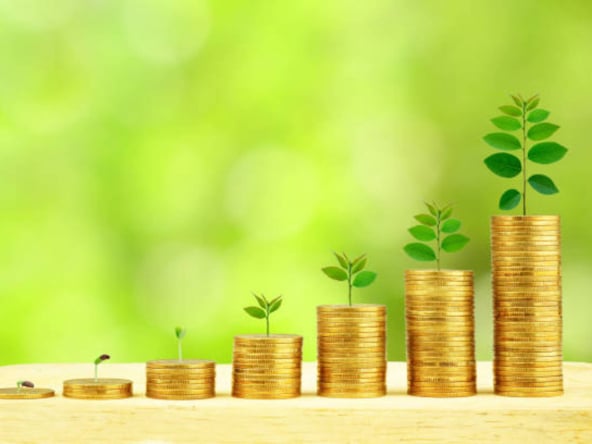What to invest 1.000 euros in It is a question that we often ask ourselves when we get an extraordinary income such as the Christmas pay that we will receive next month or if we have managed to save a little money. The question is where to invest or save this money.
Let yourself be advised by the experts of Financesofhoy.com to see which is the investment that most interests you: in the first place, it is necessary to distinguish between investors by their personal characteristics, it is not the same as asking this question by a young executive with significant monthly income plus annual bonuses, which if a pensioner makes it.
Contents
first questions
Regardless of the age and personal circumstances of the person who asks the question of invest €1.000 The first thing to consider, before investing, is whether you have bank financing or any other type of financing. For example, deferred payments for credit card purchases have a huge financial cost, more than 30% between interest and commissions. If we pay off the credit card debts or if we buy something we need with these €1.000 instead of doing it with the credit card, we are not losing (which is the same as gaining) this 30%. Is there any investment that give us so much profit?
Monetary politics
For years, monetary policy on both sides of the Atlantic has consisted of injecting huge amounts of money to counteract the effects of the 2007-2008 sub-prime crisis and later the effects of the pandemic and the war in Ukraine. As a consequence of the supersupply of money, interest rates became negative and therefore financing was very cheap. However, when such large amounts of money are injected into a financial system, it is inevitable that the dreaded inflation will appear. Inflation is the most unfair form of taxation because it affects more those people whose income is captive or limited, such as pensioners, who become forced savers in the system.
The only tool that the Central Banks have to curb inflation is the rise in interest rates, raising interest rates slows down consumption and investment and therefore the multiplier of bank credit and therefore the amount of money in hands of the system public. But what happens to those that were financed at variable rates during the time of negative interest? Well, they currently see how their mortgage payments rise from €100 to €300 per month.
Therefore, the best thing they can do if these people have €1.000 to invest is to invest in reducing their own debt: pay mortgage loan installments or consumer credit.
Risk vs Return
Leaving aside those who are in debt, whether with cards, consumer loans or variable-rate mortgages, the best thing to do if you have €1.000 to invest or save depends on the age of the investor:
As is known, the profitability of an investment is proportional to the risk. The variable income markets are more volatile or what is the same an investment in variable income is riskier, for example, than an investment in Treasury Bonds, therefore if someone invests in the variable income markets it may be that short-term is subject to capital losses or losses in its investment, however in the long run (that is, leaving aside that they may occasionally present short-term losses) investments in variable income are usually more profitable than investments in Treasury Bonds. Consequently, young people, who have a lifetime ahead of them to recover their investment, can bet on riskier investments such as equities.
However, an elderly pensioner should not risk their €1.000 in investments that may be subject to losses due to market fluctuations. The most profitable investment for an elderly person is to keep their €1.000 in a demand deposit, even if it does not pay them anything, because in this way they will not have to face a significant disability if they had invested in equities and the market would have gone down when he needed to recoup his investment. The seemingly zero return on the demand deposit is the loss he won't have if the equity market falls when he needs to recoup his investment.
Investment or savings products for all tastes
- The first possibility to invest or save these €1.000 is to create a savings account. Normally they are very little paid (for months they have been at 0%), however now with the rise in interest rates to curb inflation, the banks are beginning to compete with each other for the public's savings in an upward race in interest rates who pay for these types of accounts. The best effect of savings accounts is achieved through a systematic savings plan that consists of contributing a certain amount every so often. This saving habit (more than the remuneration paid by the bank) is what in the long run allows them to have an amount that will be very useful to pay for a down payment on a flat, buy a car, etc.
- Contributions to a Pension Plan are very interesting in order to complement the public retirement pension. The administrations promote this type of investment by providing them with tax advantages. The drawback is that the saved balance is not available until retirement age (with some exceptions).
- Investment in life insurance. With characteristics similar to the Pension Plans, without the tax advantages.
- Investment in Treasury Bonds. The sovereign debt of countries is usually considered a risk-free investment, therefore the return is low, but it can be interesting for risk-averse investors.
- Investments in equities, you can invest in equities with adequate risk diversification and from small amounts, if you do so through shares in investment funds. There is an infinite range of funds with risk combinations to suit all tastes. The choice of equity assets to invest in can be left to AI tools
- Investment in Commodities: it is even riskier than investments in equities and a certain degree of specialization is required to move in these markets. In any case, its profitability must also be higher.
- Investment in derivative products. Refers to options and futures. They are markets with high volatility and great risks.
- Investing in Crypto: Some cryptocurrencies are the most speculative products there are, they are subject to formidable rises… and no less formidable falls. However, there are already cryptocurrencies that duplicate the behavior of the strongest currencies or stock indices.
- Investment in Training: the financial and stock markets are complex and the risks are diverse and more or less high. You have to know how they work and a good way to invest these €1.000 is in training on how the financial and capital markets work.





